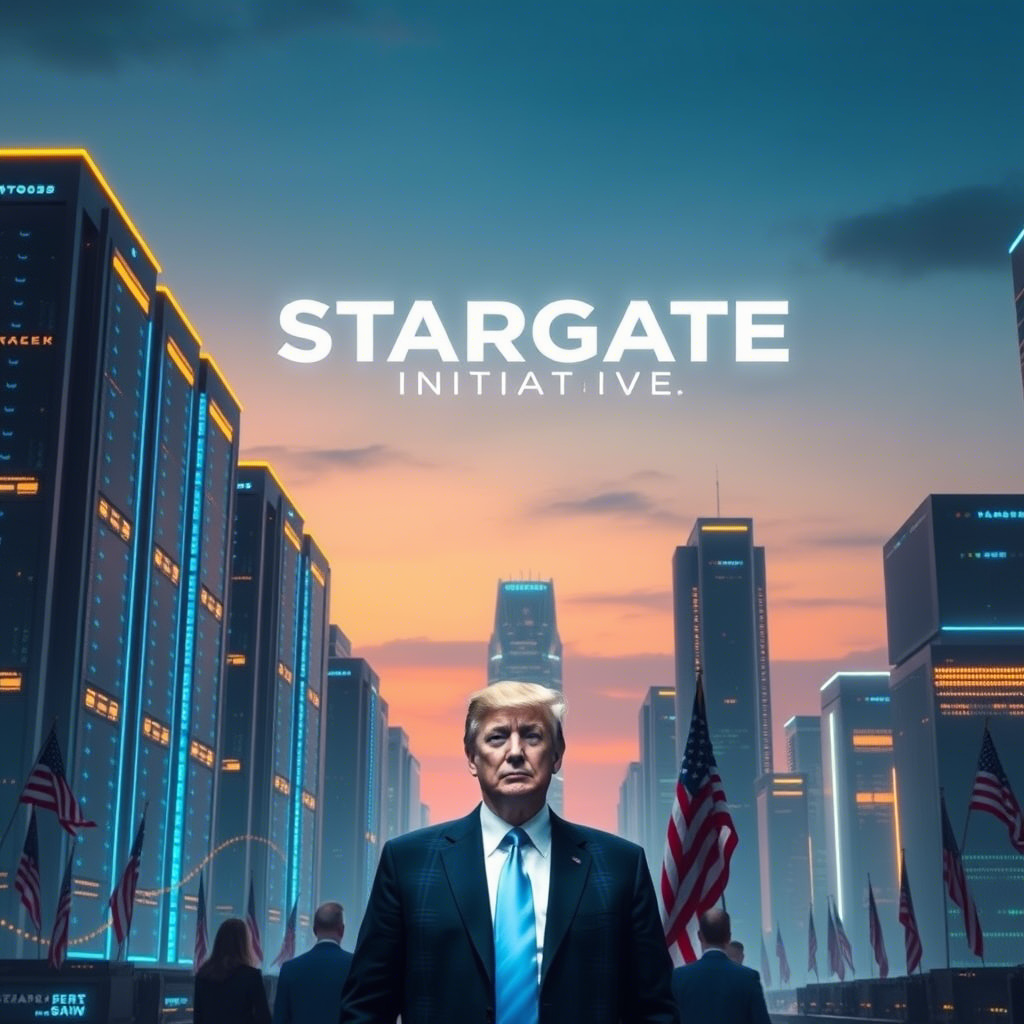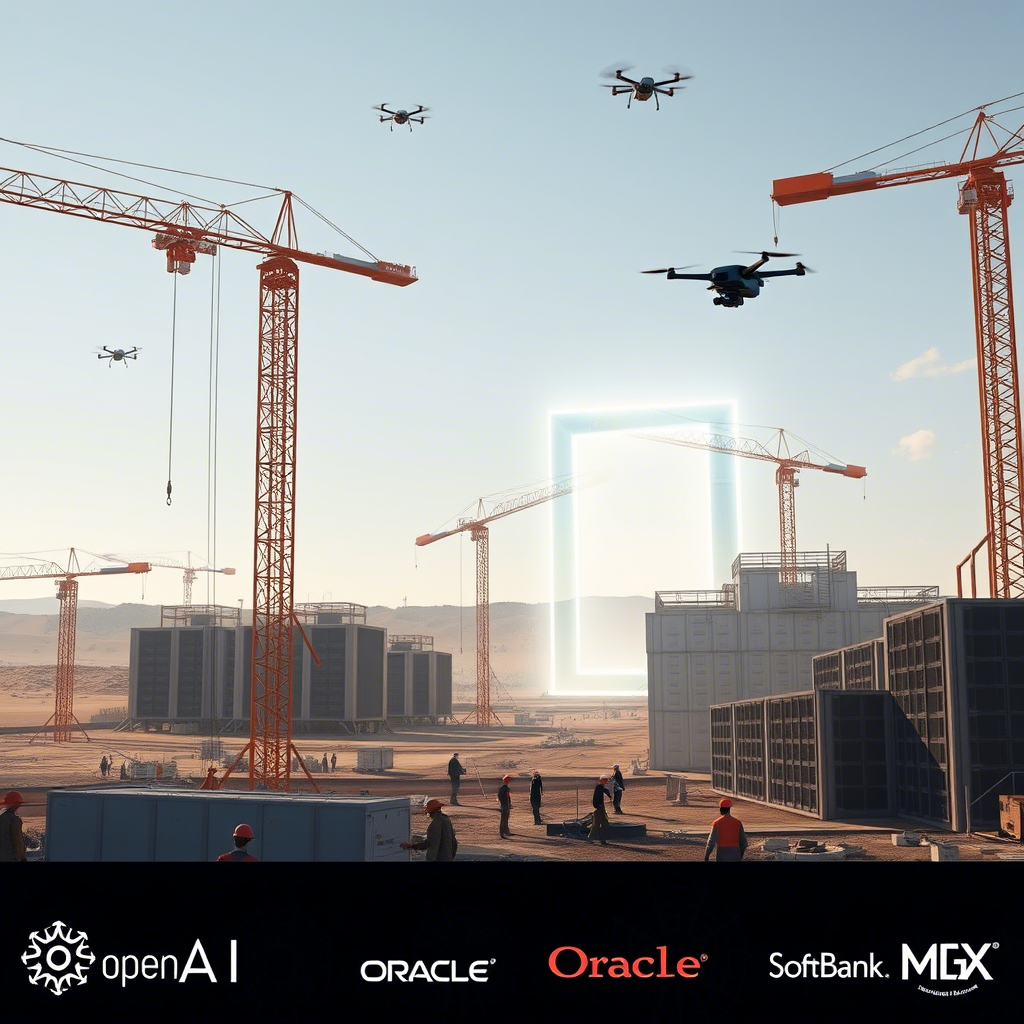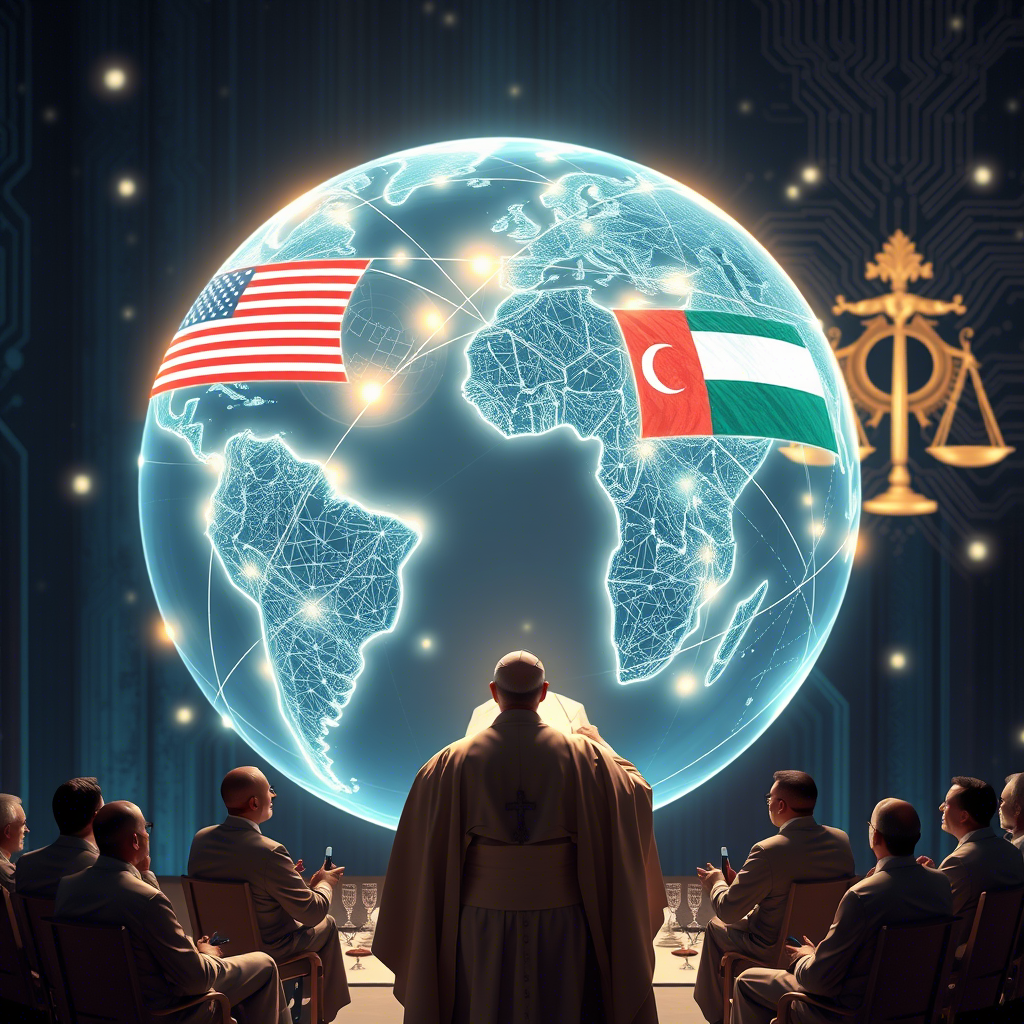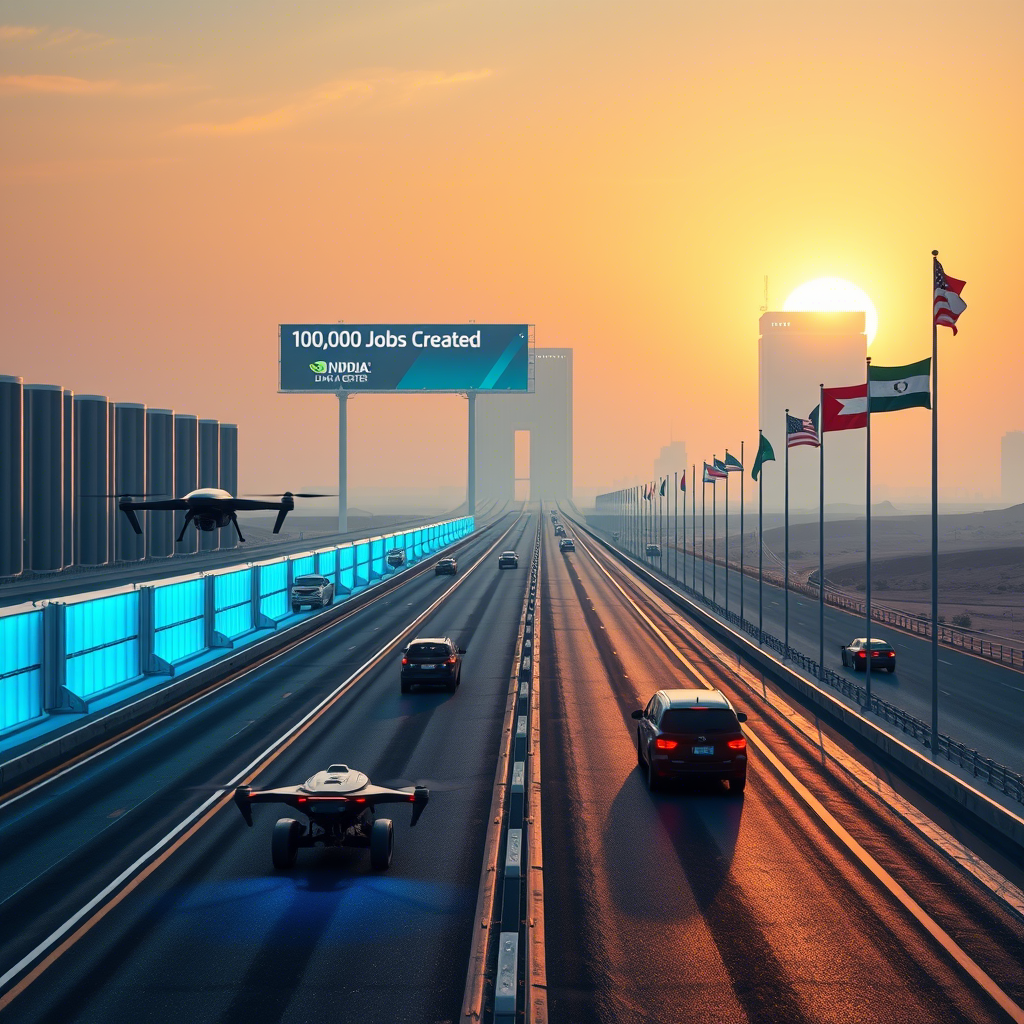In a bold move to cement U.S. dominance in artificial intelligence (AI), President Donald J. Trump’s administration has propelled the Stargate Initiative into the global spotlight. Announced on January 21, 2025, during Trump’s first full day of his second term, this $500 billion private-sector project aims to transform America’s AI infrastructure, create over 100,000 jobs, and outpace international competitors, particularly China. Backed by tech giants OpenAI, Oracle, SoftBank, and the UAE-based MGX, the initiative has sparked both excitement and skepticism, with recent developments underscoring its ambitious scope and complex challenges.

A Grand Vision for AI Supremacy
The Stargate Initiative, dubbed the largest AI infrastructure project in history, seeks to build a sprawling network of advanced data centers across the United States to power the next generation of AI innovation. The project’s initial $100 billion investment, already underway in Abilene, Texas, is set to expand to $500 billion over four years, creating what Trump has called “big, beautiful buildings” to drive economic and technological growth.
At a White House press conference in January, Trump stood alongside OpenAI CEO Sam Altman, Oracle Chairman Larry Ellison, and SoftBank CEO Masayoshi Son to unveil the initiative. “This is all taking place right here in America,” Trump declared. “There’s great competition for AI, and we’re going to win at the highest level.” The project, named Stargate, evokes a sense of futuristic ambition, aiming to “democratize” AI access for businesses, enhance national security, and boost industries like semiconductors, energy, and cloud services.
David Sacks, Trump’s AI and crypto czar, has been a key figure in articulating the initiative’s geopolitical stakes. Speaking on Mornings with Maria on June 20, 2025, Sacks cautioned that the U.S. isn’t guaranteed to win the AI race against China, emphasizing the need for export controls and robust infrastructure to maintain technological dominance. “The armies of the future will be drones and robots, and they’re going to be AI-powered,” Sacks said on his All-In podcast, highlighting the project’s strategic importance.

The Stargate Initiative is structured as a joint venture, with OpenAI managing operations, SoftBank leading financing, Oracle providing technical expertise, and MGX, an Emirati sovereign wealth fund, contributing significant capital. The project’s first phase involves constructing eight data centers in Abilene, Texas, with $15 billion already secured for this effort. These facilities are designed to handle the computationally intensive demands of modern AI workloads, which traditional data centers struggle to support.
The initiative’s scope extends beyond U.S. borders. In May 2025, Trump brokered a deal to launch “Stargate UAE,” the first international deployment of the project, in collaboration with OpenAI and the UAE government. This move, part of OpenAI’s “OpenAI for Countries” initiative, aims to build sovereign AI capabilities in allied nations, starting with a 5-gigawatt AI infrastructure cluster in the UAE, set to begin operations in 2026. The deal, which includes access to 500,000 Nvidia AI chips annually, has raised eyebrows due to the UAE’s ties to China, prompting debates about technology transfer risks.
The project’s economic impact is already visible. Companies like Nvidia and Broadcom have seen stock rallies following the announcement, as Stargate is expected to drive demand for AI hardware. Additionally, the initiative promises to create over 100,000 jobs, particularly in construction and tech sectors, with ripple effects across local economies.

Despite its grand vision, the Stargate Initiative faces significant hurdles. Financing the $500 billion project has proven difficult, with SoftBank’s efforts to raise the initial $100 billion complicated by rising costs from proposed tariffs on components like server racks and cooling systems. Analysts from TD Cowen estimate that tariffs could increase data center construction costs by 5% to 15%, potentially delaying timelines.
Elon Musk, a prominent Trump ally and head of the Department of Government Efficiency (DOGE), has publicly criticized the project. In January 2025, Musk took to X to question SoftBank’s financial commitments, claiming they had less than $10 billion secured, and labeled Altman a “swindler.” Musk’s objections intensified when his startup, xAI, was excluded from a Middle East Stargate deal involving OpenAI, Oracle, Nvidia, Cisco, and UAE’s G42. Musk’s attempts to derail the deal highlight tensions within Trump’s tech circle, complicating the administration’s dealmaking efforts.
Regulatory challenges also loom large. In Texas, where construction is underway, local regulations have raised concerns about potential delays. The Trump administration’s decision to kill a diffusion rule in May 2025, which would have restricted chip exports to Gulf nations, was partly motivated by the need to facilitate Stargate’s international expansion. However, this move has drawn criticism from those worried about weakening U.S. export controls.
Moreover, the initiative’s societal implications have sparked debate. Critics argue that Stargate’s focus on rapid AI adoption leaves the U.S. vulnerable to social and economic disruptions, such as strains on the power grid, impacts on education, and the potential obsolescence of white-collar jobs. Trump’s legislative agenda, including a massive spending bill currently under Senate review, has been criticized for not addressing these risks adequately.

Global Implications and Ethical Concerns
The Stargate Initiative is not just a domestic project but a cornerstone of Trump’s geopolitical strategy to counter China’s AI ambitions. By fostering a “Global Tech Alliance” with partners like the UAE, Japan, and potentially the UK, Germany, and France, the administration aims to flood the globe with American AI systems and secure control over critical energy and data pipelines. However, this approach risks alienating other nations, with some analysts warning that Trump’s aggressive stance could push countries toward China’s AI ecosystem.
Ethical concerns have also surfaced. On June 21, 2025, Pope Leo XIV addressed the Second Annual Rome Conference on Artificial Intelligence, warning that projects like Stargate must prioritize human dignity and avoid misuse for selfish or aggressive purposes. His remarks, attended by global leaders, underscored the need for ethical AI governance, particularly to protect youth from potential intellectual and neurological harms.

As the Stargate Initiative progresses, its success will hinge on overcoming financial, regulatory, and geopolitical challenges. OpenAI’s recent $200 million Department of Defense contract and its “OpenAI for Government” initiative signal growing federal support, but the project’s international ambitions, particularly in the Gulf, will test U.S. diplomatic and security strategies.
For now, Stargate remains a symbol of America’s AI aspirations. Construction in Abilene continues, with Altman inviting skeptics like Musk to visit the site. Local landowners and state officials are vying for a piece of the project, hoping to capitalize on its economic promise. Meanwhile, the global tech community watches closely, aware that Stargate could redefine the AI landscape for decades to come.

The Stargate Initiative is a high-stakes gamble to secure U.S. leadership in AI, blending economic ambition with geopolitical strategy. While its $500 billion price tag and bold promises have captured headlines, the project’s path is fraught with obstacles, from financing woes to ethical dilemmas. As President Trump and his tech allies push forward, the world awaits the outcome of this transformative endeavor, which could either solidify America’s AI dominance or expose the limits of its techno-optimism. For updates, follow developments on platforms like X, where discussions about Stargate’s progress and controversies continue to unfold.
Copyrights: Dhaka ai



